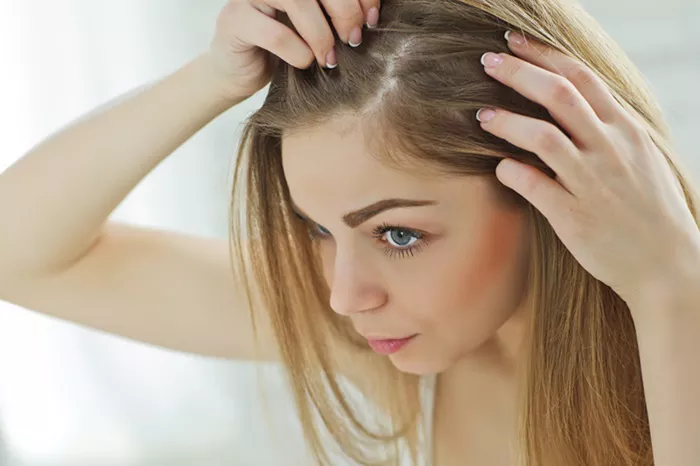Hair thinning can be distressing. For many women, their hair is a significant part of their identity. Various factors contribute to hair thinning, including genetics, hormonal changes, stress, diet, and hair care practices. Understanding how to prevent hair thinning can help women maintain thicker, healthier hair.
Understanding Hair Thinning
Causes of Hair Thinning in Females
Hair thinning in women can be due to several reasons:
Genetics: Hereditary hair loss, also known as female pattern baldness, is a common cause of hair thinning.
Hormonal Changes: Pregnancy, menopause, and thyroid issues can affect hair growth.
Stress: Physical or emotional stress can lead to temporary hair loss.
Diet: Nutritional deficiencies can impact hair health.
Hair Care Practices: Overuse of heat styling tools, harsh chemicals, and tight hairstyles can damage hair.
Signs of Hair Thinning
Wider Part: A noticeably wider part in the hair.
Less Volume: Reduced overall hair volume.
More Hair Shedding: Increased hair shedding when brushing or washing hair.
Thinning Patches: Visible thinning or bald patches.
Prevention Strategies
Healthy Diet
A balanced diet is crucial for hair health. Key nutrients include:
Protein: Hair is made of keratin, a type of protein. Include lean meats, fish, eggs, and beans in your diet.
Iron: Essential for hair growth. Found in spinach, lentils, and red meat.
Vitamins: Vitamin A (carrots, sweet potatoes), Vitamin C (oranges, strawberries), and Vitamin E (nuts, seeds) promote healthy hair.
Omega-3 Fatty Acids: Found in fatty fish, flaxseeds, and walnuts, these help keep the scalp healthy.
Proper Hair Care
Gentle Washing: Use a mild shampoo and avoid over-washing. Washing hair two to three times a week is often sufficient.
Conditioning: Use a conditioner after shampooing to keep hair moisturized and prevent breakage.
Avoid Heat Styling: Minimize the use of hair dryers, straighteners, and curling irons. If you must use them, apply a heat protectant spray.
Limit Chemical Treatments: Avoid frequent dyeing, perming, and relaxing. These processes can weaken hair.
Gentle Handling: Be gentle when brushing or styling. Use a wide-tooth comb to detangle hair.
SEE ALSO: How to Treat Damaged Bleached Hair: A Comprehensive Guide
Scalp Care
A healthy scalp is essential for hair growth:
Regular Scalp Massage: Improves blood circulation and promotes hair growth. Use your fingertips to massage your scalp for a few minutes daily.
Exfoliation: Use a scalp scrub to remove dead skin cells and product buildup.
Proper Hydration: Drink plenty of water to keep your scalp hydrated.
Stress Management
Stress can contribute to hair thinning. Manage stress through:
Regular Exercise: Helps reduce stress levels.
Meditation and Yoga: Promotes relaxation and reduces anxiety.
Adequate Sleep: Aim for 7-8 hours of sleep per night.
Medical Interventions
For severe hair thinning, medical treatments might be necessary:
Minoxidil: A topical treatment that can promote hair growth.
Hormone Therapy: For hair thinning due to hormonal imbalances.
Platelet-Rich Plasma (PRP) Therapy: Involves injecting platelets into the scalp to stimulate hair growth.
Hair Transplant: Surgical option for permanent hair restoration.
Lifestyle Changes
Avoid Tight Hairstyles
Tight hairstyles, like ponytails and braids, can cause hair breakage and thinning. Opt for looser styles.
Protect Your Hair from Environmental Damage
Sun Protection: Wear a hat or use a UV protectant spray to shield your hair from the sun.
Avoid Chlorine and Salt Water: Rinse hair immediately after swimming to remove chlorine and salt, which can damage hair.
Regular Hair Trims
Regular trims can prevent split ends and breakage. Aim to trim your hair every 6-8 weeks.
Natural Remedies
Essential Oils
Certain essential oils can promote hair growth and strengthen hair:
Rosemary Oil: Stimulates hair growth. Mix a few drops with a carrier oil and massage into the scalp.
Lavender Oil: Has antimicrobial properties and can improve scalp health.
Peppermint Oil: Increases blood circulation to the scalp.
Aloe Vera
Aloe vera can soothe the scalp and promote hair growth. Apply aloe vera gel to the scalp and leave it on for an hour before rinsing.
Green Tea
Green tea contains antioxidants that can promote hair growth. Rinse your hair with brewed green tea or take green tea supplements.
Coconut Oil
Coconut oil can penetrate the hair shaft and prevent protein loss. Use it as a pre-wash treatment or a leave-in conditioner.
Hair Growth Supplements
Biotin
Biotin, a B vitamin, is essential for hair growth. It can be found in foods like eggs, nuts, and seeds or taken as a supplement.
Collagen
Collagen supplements can improve hair health. Collagen is a protein that provides structure to hair, skin, and nails.
Silica
Silica can strengthen hair and prevent thinning. It’s found in foods like bananas, oats, and beer or taken as a supplement.
Regular Hair Care Routine
Shampoo and Conditioner
Use a shampoo and conditioner formulated for your hair type. Look for products that contain ingredients like keratin, biotin, and natural oils.
Leave-in Treatments
Leave-in conditioners and serums can provide extra moisture and protection.
Weekly Deep Conditioning
Use a deep conditioning treatment once a week to keep hair hydrated and strong.
Conclusion
Preventing hair thinning involves a combination of a healthy diet, proper hair care, stress management, and possibly medical interventions. By following these tips and incorporating them into your daily routine, you can maintain thicker, healthier hair. Remember, consistency is key, and results may take time to become noticeable. Always consult with a healthcare provider before starting any new treatment or supplement regimen.

